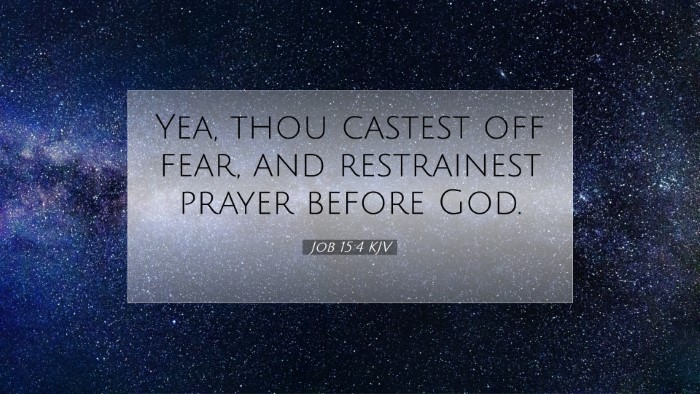Old Testament
Genesis Exodus Leviticus Numbers Deuteronomy Joshua Judges Ruth 1 Samuel 2 Samuel 1 Kings 2 Kings 1 Chronicles 2 Chronicles Ezra Nehemiah Esther Job Psalms Proverbs Ecclesiastes Song of Solomon Isaiah Jeremiah Lamentations Ezekiel Daniel Hosea Joel Amos Obadiah Jonah Micah Nahum Habakkuk Zephaniah Haggai Zechariah MalachiVerse
Job 15:1 Job 15:2 Job 15:3 Job 15:4 Job 15:5 Job 15:6 Job 15:7 Job 15:8 Job 15:9 Job 15:10 Job 15:11 Job 15:12 Job 15:13 Job 15:14 Job 15:15 Job 15:16 Job 15:17 Job 15:18 Job 15:19 Job 15:20 Job 15:21 Job 15:22 Job 15:23 Job 15:24 Job 15:25 Job 15:26 Job 15:27 Job 15:28 Job 15:29 Job 15:30 Job 15:31 Job 15:32 Job 15:33 Job 15:34 Job 15:35

